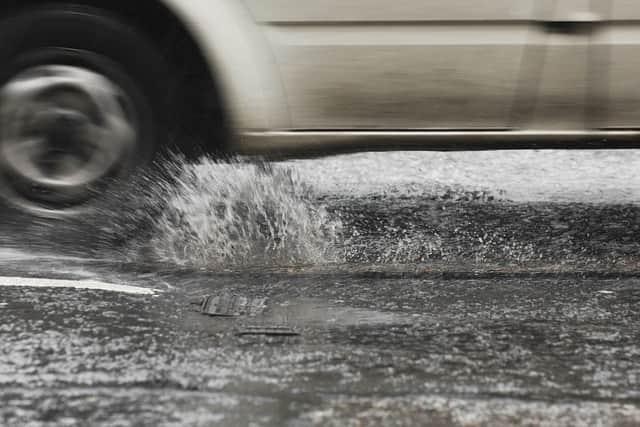Dave Watson: Potholes are just the tip of the iceberg for cash-strapped councils


Let me get technical, just for a moment. Potholes are caused by a natural phenomenon: the expansion and contraction of ground water. Freezing water expands, the road then bends and contracts causing cracks. So more water gets in, which freezes again. As it thaws it leaves gaps under the tarmac. Then we drive over the weakened road which depresses the tarmac, breaking it up and displacing it – creating a pothole.
The aim should be to stop potholes in the first place, or at least have fewer of them. Road teams would like to be more strategic, tackle ground water, and intervene early to repair the cracks to stop water getting under the road. Cracks which are left become potholes, potholes which are left become big potholes. And that is when motorists start to complain.
Advertisement
Hide AdAdvertisement
Hide AdThe problem is that roads teams budgets are an easier target. Who is going to notice – most of the time? Until a big freeze. And anyway we can send them out to do a road patch.


Unison’s recent report Road to Nowhere finds that roads budgets have been cut by 21 per cent since 2011/12 and warns they will continue to fall until at least 2021.
Contrary to popular myth, roads teams are a highly-skilled workforce of manual workers, engineers, technicians and managers. They hold HNDs, degrees, master and charter degrees and a range of qualifications like SVQs in roads maintenance, winter maintenance and HGV licences. But we are losing these jobs and skills to austerity. When someone retires, it’s too tempting to not replace them in an attempt to balance the budget. This builds up future problems of skills gaps and an ageing workforce.
Potholes are a nuisance and can be dangerous, don’t get me wrong. They damage cars, are a cost to business and cause personal injuries or worse. But cuts get even more serious when we consider building control staff, environmental health officers and planners.
Who, for example, notices when the council don’t do a building site visit to check a building warrant? What even is a building warrant? Unison’s report Building Stress: A survey of building control staff is a sobering read. Building control teams issue building warrants and ensure dangerous buildings are made safe. They work in small teams. Any job cuts to these teams has a substantial impact on their performance. Unison’s report highlighted 56 fewer staff working in building standards departments than in 2010 in Scotland.


Building standards staff are under enormous pressure to deliver a high quality service, but they are stuck in the office. They should be spending more time doing site visits, checking that building plans are being properly followed. Instead they struggle to cope with heavier workloads.
It is worth stating that this is some of the most important, yet poorly recognised work in our councils. These workers are regularly stereotyped as interfering bureaucrats. Unnecessary red-tape. Unqualified pen-pushers. But nothing could further from the truth. And, frankly, interfering is exactly what we need them to do.
Every time you buy carry-out food you can thank a shrinking team of environmental health officers who have been out before you to check the premises, food, storage, how the cook works and their food management systems. In short, ensuring it’s safe to eat.
Advertisement
Hide AdAdvertisement
Hide AdTrading standards officers now work in an internet age. As a nation we are one of the biggest internet shoppers, we buy direct from suppliers across the world, so do retailers. It’s not just checking that a pint is a pint, and the petrol pump is accurate – if that is not serious enough. It’s making sure toys from international websites are safe for our kids, who made the fireworks sold on our streets and who controls the tobacco trade?
Environmental health and trading standards officers tell us they are losing expertise. Cuts to small teams means they get less time to specialise. They have to be a jack of all trades, covering for each other. They get put on to any job to make sure they get the work done. When you work in a sector you get to know the issues, the safety problems and scams. You know how a petrol station might try and make a quick buck, or a website sell us poison marked as perfume.
So, potholes are not just a bump in the road. They are a metaphor. The council and road teams are doing their best and they will be out to put a patch over it. But more and more council services can only react: patching rather than preventing problems.
We need to stop the cuts and start to invest or next time we have a cold snap, probably this time next year, the potholes will be even more serious.
Dave Watson, head of policy and public affairs, Unison Scotland.